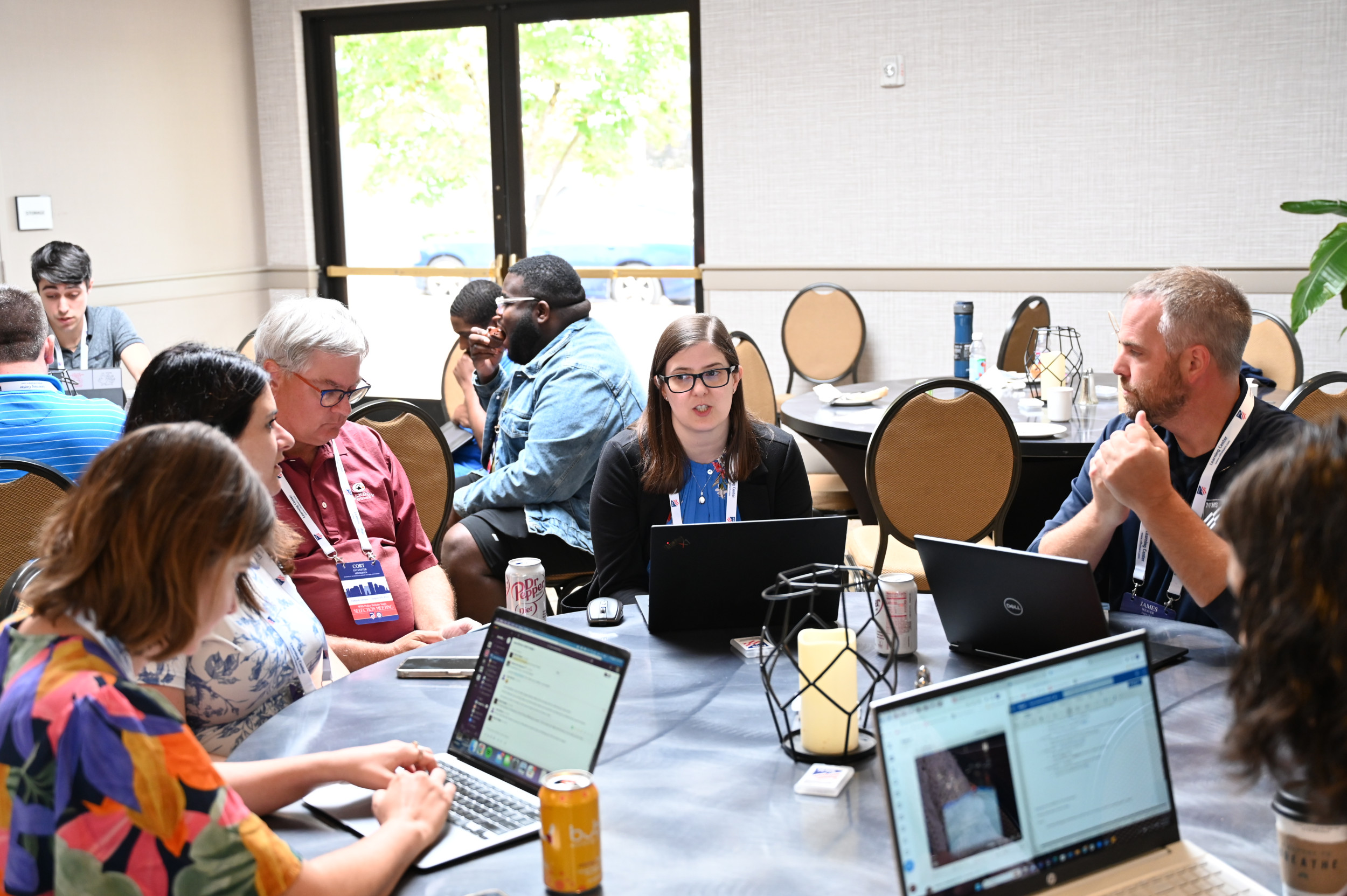Oct 25, 2023 At 01:06 PM EDT
The National Federation of State High School Associations (NFHS) has announced the final two topics for consideration for the 2024-2025 national policy debate topic.
After the ballot with the five topic areas was sent out for a vote in August, the options were narrowed down to two domestic policy topics: intellectual property rights and nuclear weapons reduction.
"We've had a lot of positive reactions," James Weaver, the director of performing arts and sports at the NFHS, told Newsweek. "We want the first round of five voting to be difficult for people [who] want to debate all of them. That's what we saw this year, and I'm really excited about that."
In August, the NFHS hosted the Policy Debate Topic Selection Meeting in Portland, Oregon, bringing together delegates from several states and national debate organizations to present, rework and later vote on pitches for next year's national policy debate topic.
Each topic also has a resolution, the question or statement usually in the form of a policy, that debaters argue. For intellectual property rights, the resolution is "Resolved: The United States federal government should significantly strengthen its protection of domestic intellectual property rights in copyrights, patents, and/or trademarks."
The resolution for nuclear weapons reduction is "Resolved: The United States federal government should substantially reduce the size and/or restrict the roles of its nuclear weapons arsenal."
One of these two resolutions will be what thousands of high school policy debaters will research and formulate arguments for across the country next school year.
Weaver said that despite being chosen over a year before it will be debated, the national policy debate topics always align with the national or international political conversation.
"I find it fascinating that every topic we've chosen we choose about 18 months prior to the first debates happening, and they're always very relevant, very relatable all the time," he said.
After the ballots were returned on October 15, the NFHS tabulated results from 36 states and Washington, D.C., as well as the National Speech and Debate Association, the National Debate Coaches Association, the National Association for Urban Debate Leagues and the National Catholic Forensic League.
The NFHS has seen back-to-back record turnouts, as this submission was tied for the most participation in the balloting process, Weaver said. This has come after intentional efforts from the NFHS to improve communication by reaching out to the debate community to make their voices heard.
"That shows the state community and national community is engaged in the process," he said. "We had a drop down [in participation] quite a bit several years ago and so that goal has been finding that reengagement level. I think it's exciting that we've hit not only a reengagement level but a record reengagement level."
The states that returned ballots include:
- Alaska
- Arizona
- Arkansas
- California
- Colorado
- Florida
- Georgia
- Idaho
- Illinois
- Indiana
- Iowa
- Kansas
- Kentucky
- Maryland
- Massachusetts
- Michigan
- Minnesota
- Mississippi
- Missouri
- Montana
- Nebraska
- Nevada
- New Hampshire
- New Jersey
- New York
- Ohio
- Oklahoma
- Oregon
- Pennsylvania
- South Dakota
- Tennessee
- Texas
- Virginia
- Washington
- Wisconsin
- Wyoming
The ballots were returned to the NFHS after each state and organization ranked the top five topic options from one to five—with one being their most preferred option and five being their least preferred option.
The NFHS published the point breakdown for each of the five initial topic options, showing how each was ranked, in order to be as transparent as possible about the process, Weaver said.

Nuclear weapons reduction gained the most No. 1 rankings for a score of 113, followed by intellectual property rights at 115, critical infrastructure and agricultural subsidies at 125 and then American Arctic policy with 137 points.
Weaver said he stopped trying to guess which topic would win a long time ago. He explained that what people like at the topic selection meeting is very different from what the voting population might like, as those ballots represent the opinions of the entire state and national organization memberships.
"I stopped guessing because I know what the room would probably select, but when it gets down to the broader community where we're getting thousands of votes, it just changes how that's gonna go," he said.
A new ballot has been sent to the states and organizations to be returned on January 5, 2024. On January 10, 2024, the NFHS will announce the final preferred topic and resolution.
Weaver expects the second round of voting to happen a lot faster than the first round because states and national organizations need less discussion time to decide between the topics. While voters have less choices to consider, the rest of the year is busy with holiday breaks and major debate tournaments scheduled.
"The more people who are involved in the process, the better the process," he said. "So I highly encourage everyone to make sure they contact their state association or national organization they belong to and get involved in the voting process. That's how we do what we do best—when everyone is involved."
The final 2024-2025 national high school debate topic and resolution will be posted on the NFHS Speech and Debate webpage and will be sent to state associations and affiliated members.








